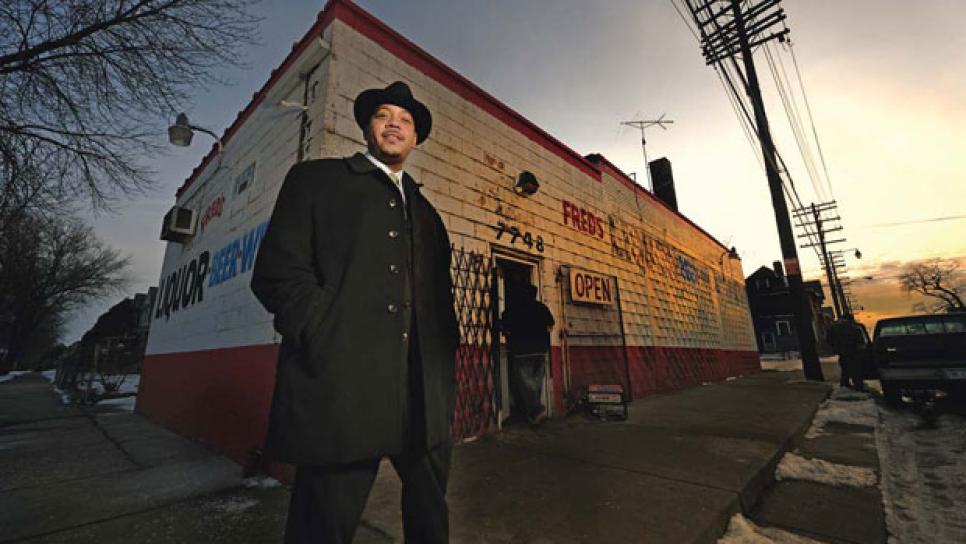Golf Was My Way Out

Keith Anderson, in front of a corner store near his childhood home on the east side of Detroit.
I grew up on the east side of Detroit amid drugs and gangs. All my childhood friends ended up addicted, dealing, in prison or dead. Our home was robbed twice. My mother, who taught the second grade, sat me down early and said, "You're set up to fail. The only way you can make it out of here is to stay strong."
When I was 13, a classmate told me he got a summer job caddieing. I mentioned this to my mother, who thought it was a great idea and began dropping me off at the Country Club of Detroit every morning at 6.
At that moment in my life I had no interest in golf and even less interest in carrying overstuffed bags for overstuffed old men. After my mother left the parking lot I'd sneak over to a friend's house to play basketball and video games. Then I'd sneak back in time for her to pick me up. I'd always tell her the same thing: "Caddiemaster didn't call me for a loop."
One day this kid came up to me and said, "Hey, man, I see you up here every day, but I never see you out on the course working. What's up with that?"
"I have no interest carrying bags for rich people," I said. "It's degrading."
"Degrading or not," the kid said, "I make $100 a day."
I had no idea they made that much. My mind-set totally shifted. I started getting in the caddiemaster's face, begging to get out. I studied the Rules of Golf and went from a "B" caddie to an "honor" caddie within a month. I discovered a lot of the members were actually pretty good folk who expressed genuine concern about me as a person, and it wasn't long before some started calling me at home to request that I caddie for them or their business clients. Being well known, respected and liked was a new feeling for me. And it felt good.
Even better was that they let caddies play the course on Mondays. I never knew such an oasis of grass, trees, water and deer could exist in the city, let alone that they'd let a kid from the ghetto on it for free. I bought a set of clubs for $125 and started playing 36 every Monday. The neighborhood kids would taunt me whenever I walked to the bus stop with my clubs on my shoulder. I ignored them. When I got to the course, I'd feel like I was on a tropical island. All the gunshots, sirens and tormenting gang members vanished.
When I was 15, my father died. My parents had been able to save enough money to send my two older sisters to college, but with my father gone there wasn't going to be enough for me. My mother was so proud of how well I'd been doing, caddieing and at school, and she cried as she told me this. This same year my best friend joined the local gang YBI (Young Boys Incorporated) and got convicted for accessory to murder.
I thought I was stuck. But the summer before my senior year I saw a posting at the caddie shack for something called the Chick Evans Scholarship. It offered four years of full tuition, room and board to a deserving caddie in need. After five rounds of interviews, including one intense session facing a room of about 40 committee members in blazers, I got the scholarship. I attended Michigan State University and graduated with a degree in industrial/organizational psychology.
I'm 40 now, and I have a successful career designing employee-training courses. I have a beautiful fiancee with a beautiful 5-year-old daughter, and we live far away from the ghetto. I own my home and car, and the game I owe it all to I play twice a week.
My mother died my last year of college. She never got to see what became of me, but I know she's up in heaven smiling, proud. Each time I play and a putt just drops I know it's her giving it that last gentle nudge.
*Did golf save your life? E-mail us at golfsavedmylife@golfdigest.com.